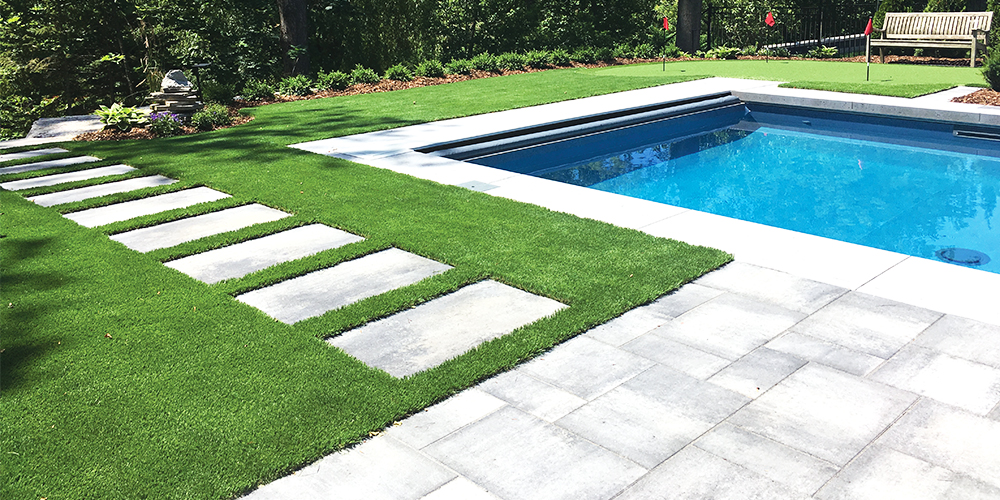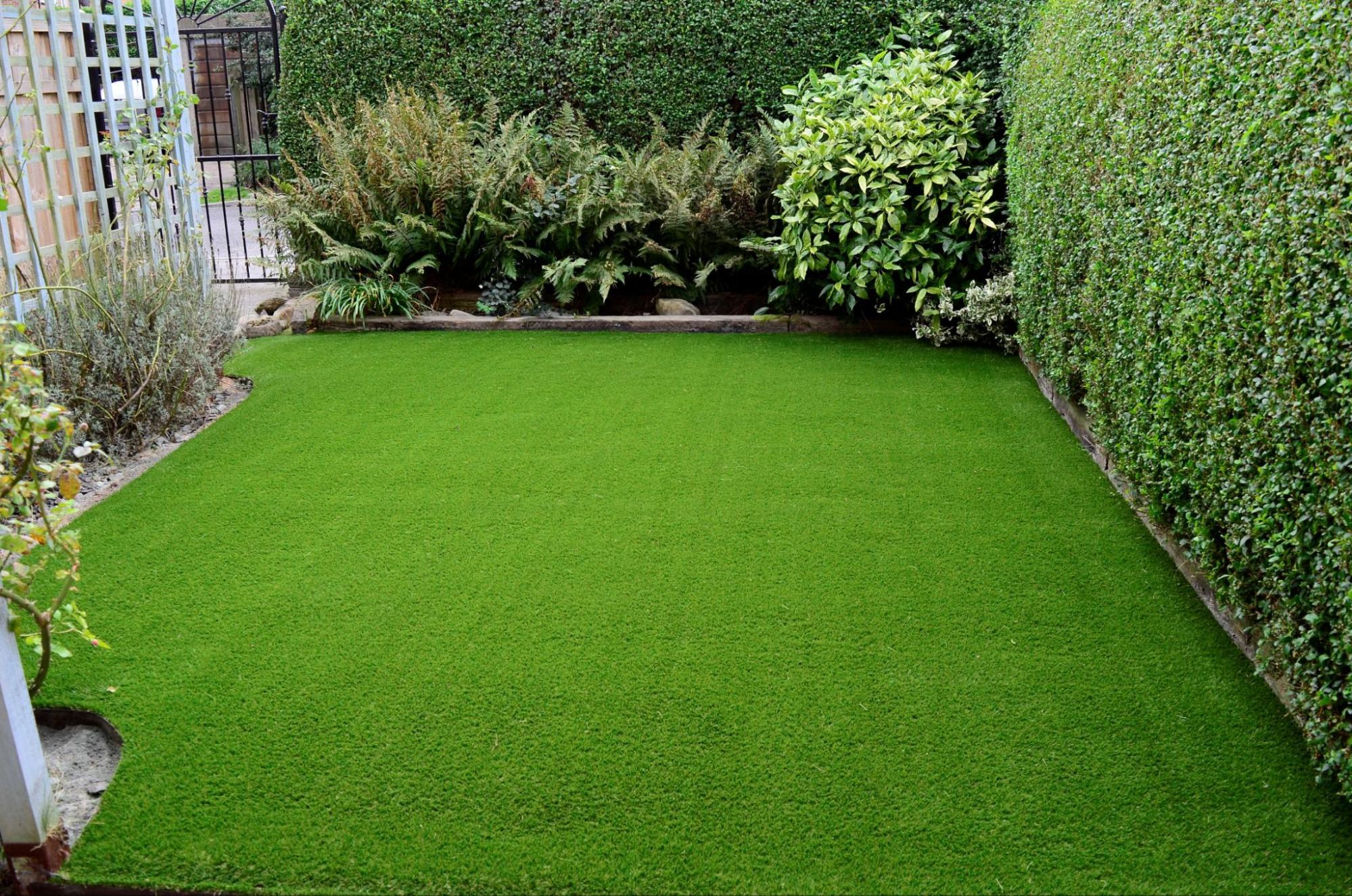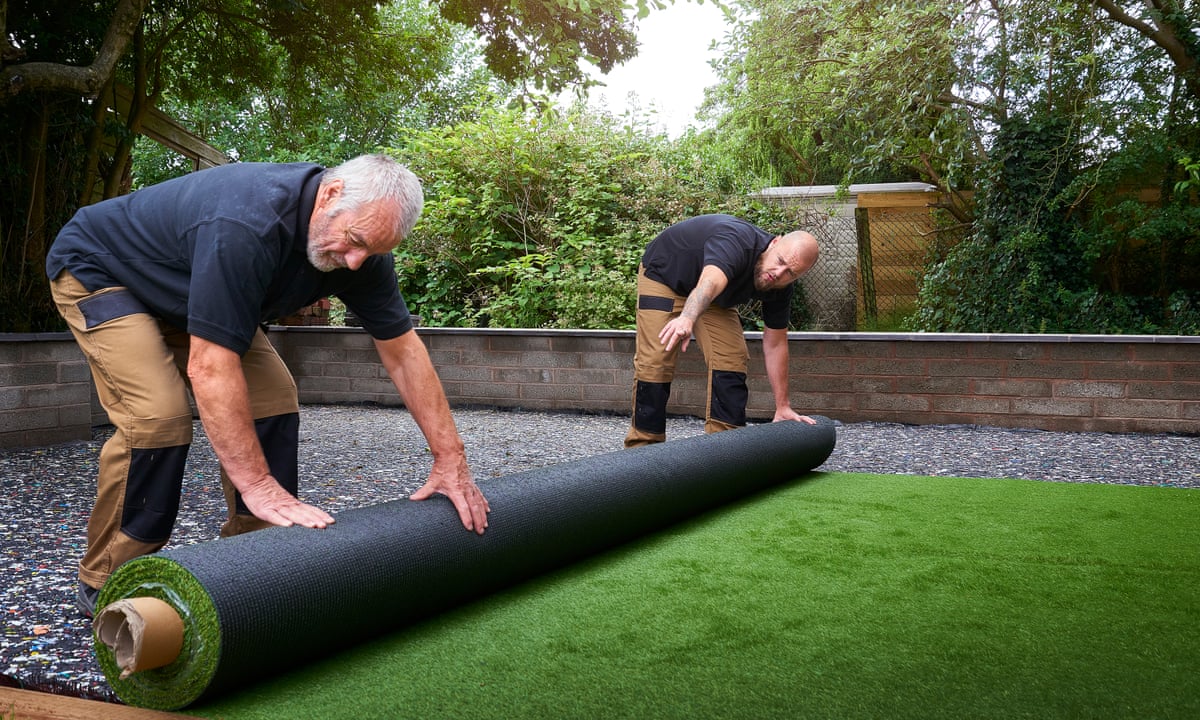Luxury Arizona Turf Installation Services for Homes and Commercial Properties
Wiki Article
Delve Into the Environmental Advantages of Opting for Artificial Turf Solutions
The adoption of synthetic turf solutions presents a compelling possibility to attend to pushing ecological difficulties. By significantly decreasing water usage and minimizing the application of damaging chemicals, these options not just advertise sustainable landscape design yet likewise protect regional ecosystems.Water Preservation Conveniences
Among the most considerable advantages of synthetic grass is its capacity to save water. Typical yard lawns need significant irrigation, specifically in areas vulnerable to dry spell or water constraints. On the other hand, fabricated grass does not need watering, substantially minimizing the overall need for water resources. This function is especially helpful in deserts where water shortage is a pushing issue.By removing the requirement for regular watering, man-made turf adds to lasting landscape methods and helps mitigate the environmental effect of too much water intake. Additionally, the preservation of water reaches the decrease of drainage, which can cause soil erosion and river pollution.
Furthermore, the installation of synthetic grass enables communities and property owners to designate water resources much more successfully, concentrating on crucial uses such as alcohol consumption water and farming. The change towards synthetic turf not just promotes accountable water usage however likewise lines up with broader environmental objectives targeted at preserving natural deposits.
As communities increasingly focus on sustainability, the water preservation benefits of artificial grass offer a compelling instance for its fostering in residential and industrial landscaping tasks.
Lowered Chemical Use
The shift to synthetic grass considerably decreases the dependence on chemical treatments typically used in natural lawn maintenance. Standard turf management commonly involves the application of chemicals, plant foods, and herbicides to advertise development and control insects. These chemicals can position risks to human health and wellness, local wild animals, and the environment, adding to soil and water contamination.In comparison, synthetic grass eliminates the need for these harmful compounds. By reducing the release of artificial substances into the ecological community, synthetic lawn advertises much healthier dirt and water systems.
Moreover, the absence of chemical runoff associated with synthetic grass installments aids shield local rivers from pollution, sustaining marine life and preserving biodiversity. Arizona turf. As areas significantly prioritize sustainable practices, going with synthetic grass provides a sensible remedy that straightens with ecological conservation objectives. Through this shift, residential property proprietors can appreciate rich eco-friendly rooms without compromising eco-friendly wellness, paving the method for a much more sustainable future
Lower Carbon Footprint

Additionally, the installation of man-made lawn can lead to considerable water preservation. All-natural yards require significant amounts of water Source for irrigation, which not only contributes to the carbon footprint connected with water removal and therapy however likewise pressures neighborhood water sources. In comparison, man-made grass needs very little maintenance, calling for no watering, consequently substantially reducing water usage and its associated power prices.
Additionally, the longevity of synthetic grass adds to its decreased carbon impact. With a life-span of approximately 15 years or even more, the demand for constant replacements is reduced, resulting in less waste and reduced power intake in production and dealing with standard grass options. In general, synthetic grass provides a lasting alternative for eco aware landscape design.
Habitat Preservation
Environment preservation is a vital factor to consider in the dispute over landscape design choices, specifically when contrasting synthetic grass to natural turf. Natural yard yards typically call for considerable upkeep, consisting of using fertilizers, herbicides, and pesticides, which can negatively influence neighborhood communities. These chemicals can seep right into the dirt and rivers, harming native flora and animals and interrupting local environments.
On the other hand, synthetic grass provides an opportunity to lower the environmental impact of landscape design. By selecting synthetic yard, homeowners can minimize the disturbance of natural environments connected with traditional yard care techniques. Synthetic grass removes the requirement for dangerous chemicals, therefore securing close-by wildlife and keeping the integrity of surrounding ecosystems. The installment of synthetic grass can lead to the conversion of previous yard areas into click here for more info more biodiverse landscapes, such as pollinator gardens or native plant areas, which can sustain local wildlife.
Inevitably, the shift to artificial turf not only conserves water and reduces upkeep efforts however also fosters a more harmonious partnership in between human tasks and the natural environment, advertising habitat preservation in the procedure.
Long-Term Sustainability
Lasting sustainability is an essential consider assessing the advantages of man-made lawn over traditional lawn yards. Among one of the most significant benefits of synthetic grass is its sturdiness; it can last as much as 15-20 years with minimal upkeep, whereas natural grass calls for regular reseeding and replacement. This longevity reduces the requirement for continuous sources, such as water, fertilizers, and chemicals, which are crucial for preserving a healthy turf yard.Furthermore, man-made turf adds to a decrease in carbon discharges associated with yard care devices. Traditional grass typically call for gas-powered lawn mowers, trimmers, and blowers, every one of which contribute to air pollution. Arizona turf. On the other hand, fabricated turf removes the demand for such equipment, advertising a cleaner environment
In addition, the production of synthetic grass progressively utilizes recycled materials, boosting its sustainability profile. As suppliers embrace green methods, the environmental impact of fabricated grass remains to reduce.

Verdict
The fostering of synthetic grass solutions offers considerable ecological benefits, consisting of substantial water preservation, reduced reliance on hazardous chemicals, and a lower carbon footprint. Additionally, fabricated turf help in protecting natural habitats by minimizing land disturbance and promoting long-term sustainability via making use of sturdy materials. Collectively, these factors emphasize the potential of fabricated turf to add positively to ecological wellness and provide a sensible option to traditional landscape design methods in an increasingly resource-conscious globe.In contrast, fabricated grass does not need watering, considerably lowering the overall demand for water sources. By reducing the launch of artificial substances into the ecosystem, artificial lawn promotes much healthier soil and water systems.
In addition, the setup of artificial turf can result in substantial water preservation. In comparison, synthetic turf needs very little upkeep, calling for no watering, consequently significantly lowering water usage and its linked energy expenses.

Report this wiki page